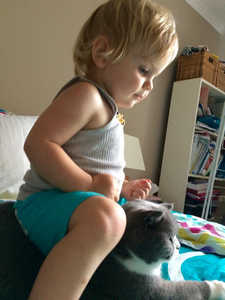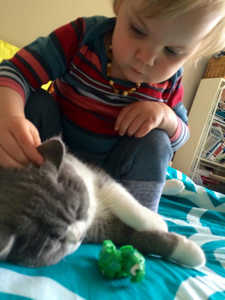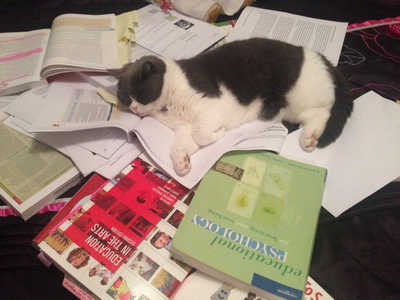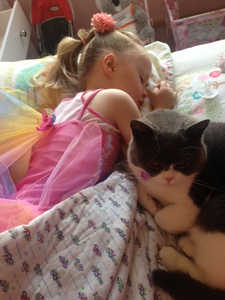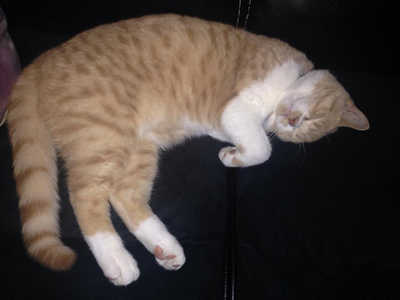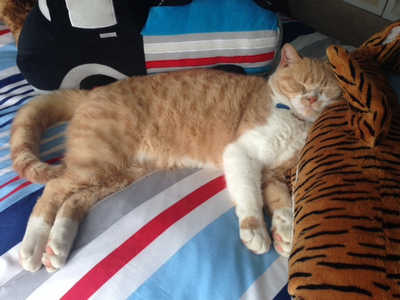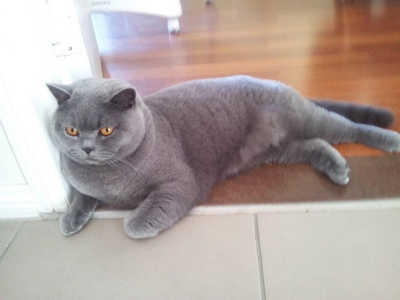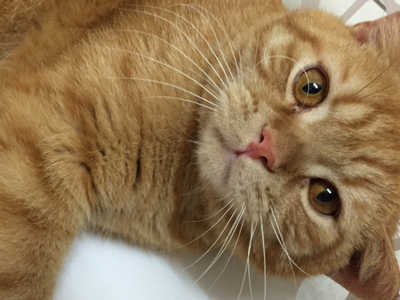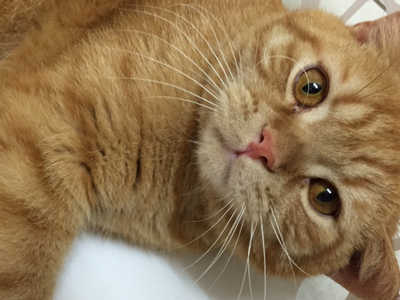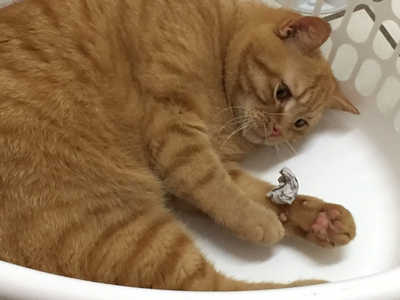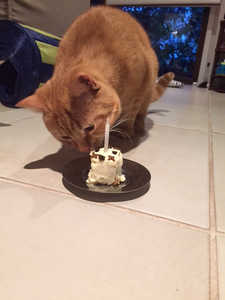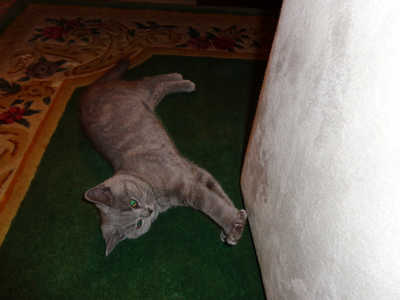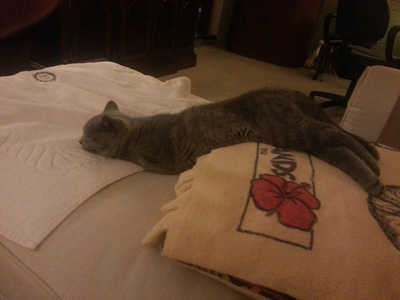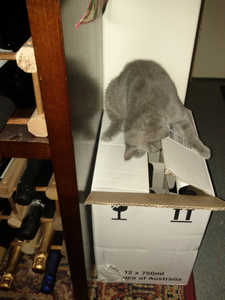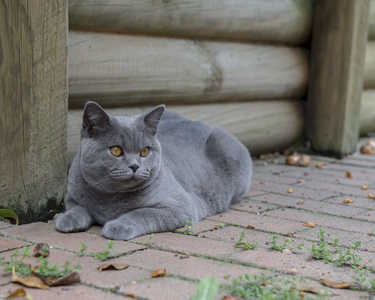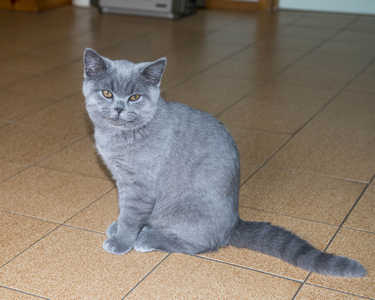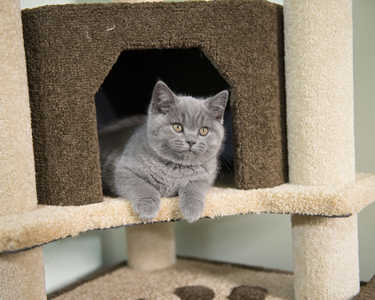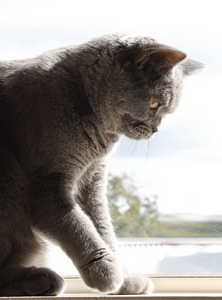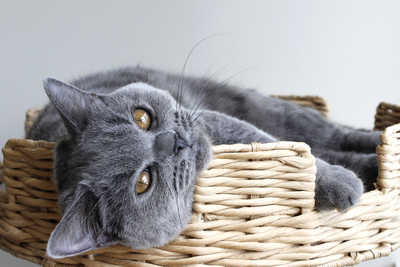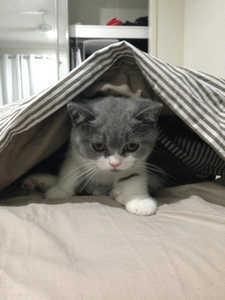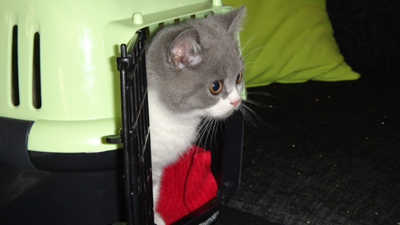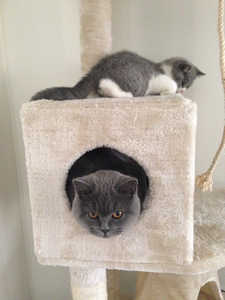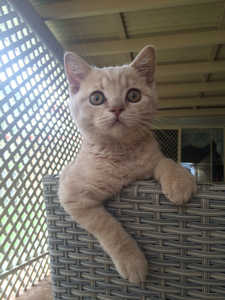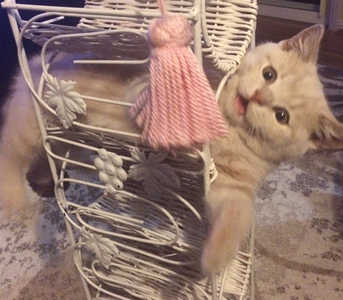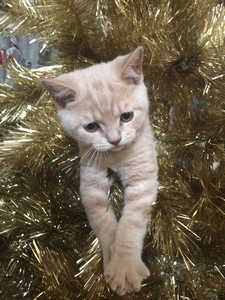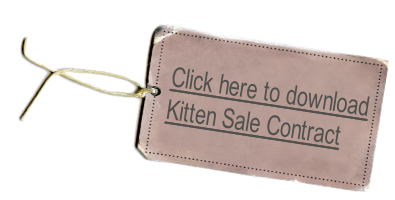Kittens

Once you’ve picked out your new kitten and are ready to bring him home, restrict the new arrival to one room initially so that it is not overwhelmed by it’s new environment. Put its food and water dishes, litter tray, a warm bed, a scratching post and suitable toys in the room.
Locate the litter tray a least a couple of meters away from the food and water bowls, quite reasonably cats prefer not to eat and defecate in the same area. Its best if the room you choose is the same one in which the litter tray will be kept permanently so that the cat’s routine is already in place and the cat will not be confused by removal of the tray.
When you get the kitten home, take it out of it’s carrier and show it where everything is. Initially the kitten will probably take up residence under furniture. Don’t try to prise it from its hiding place, just wait for it’s exploring instinct to take an interest in its surroundings, allow it to investigate the rest of the house.
At night try to make the kitten as comfortable as possible, a hot water bottle wrapped in an old jumper provides a source of warmth and a soft toy adds a little extra comfort.
A cat needs a bed big enough for the cat to stretch out in when fully grown and enclosed on three sides for warmth and security. Apart from this criteria, any bed will do. Which ever you choose, clean the bedding regularly as cats don’t like sleeping in a dirty bed. Eventually, your cat will decide where it wants to sleep.
Please do not be tempted to change your kitten’s diet too soon, continue feeding the kitten whatever it was eating before as changing homes is stressful for the kitten and continuity of feeding is very important at this time. If you do want to change it, wait until the kitten has settled in and is eating well, and then introduce the new food gradually over 6 or 7 days.
Important
Vaccination: Your kitten has been vaccinated at 8 and 12 weeks, if required a third vaccination can be given at 16 weeks. Your kitten then needs a booster at 12 months. Studies have shown that you can now safely leave your vaccinations to about every 3 years (unless you require the services of a boarding facility).
Worm Control: Kittens are wormed at 4, 6 and 8 weeks and will be due at 12 weeks of age, then every 3 months.
De-sexing: If your kitten is sold as a pet, it will have already been desexed.
Litter Tray: Keep the tray in a permanent position. Change the litter regularly to prevent the kitten from going else where. When you first take your kitten home, place it in the tray regularly for a few days to reinforce where the tray is kept and to encourage scratching in it.
Feeding: Your kitten will need to be fed 3 times a day to 6 months of age, then 2 meals a day will be sufficient. We leave fresh water and Black Hawke, Royal Canin Kitten or Ivory Coat Kitten biscuits with the kitten at all times. They have also been eating beef, roo and chicken mince, cheese and Sylvester kitten brand cat food. It is recommended that the kitten stay on the same food. If you wish to change your kittens diet, do so gradually so as to avoid upsetting the kittens tummy which will result in diarrhea.
RETIRED ADULTS.
From time to time we have adults that have been retired. Feel free to ask if we will be retiring any Queens or Studs in the future. There is a nominal fee to adopt these cats to cover the cost of desexing.
NEVER GIVE COWS MILK OR COOKED BONES.
Enjoy the new member of your family. If you have any questions about your new kitten when you get home, please do not hesitate to call me.
